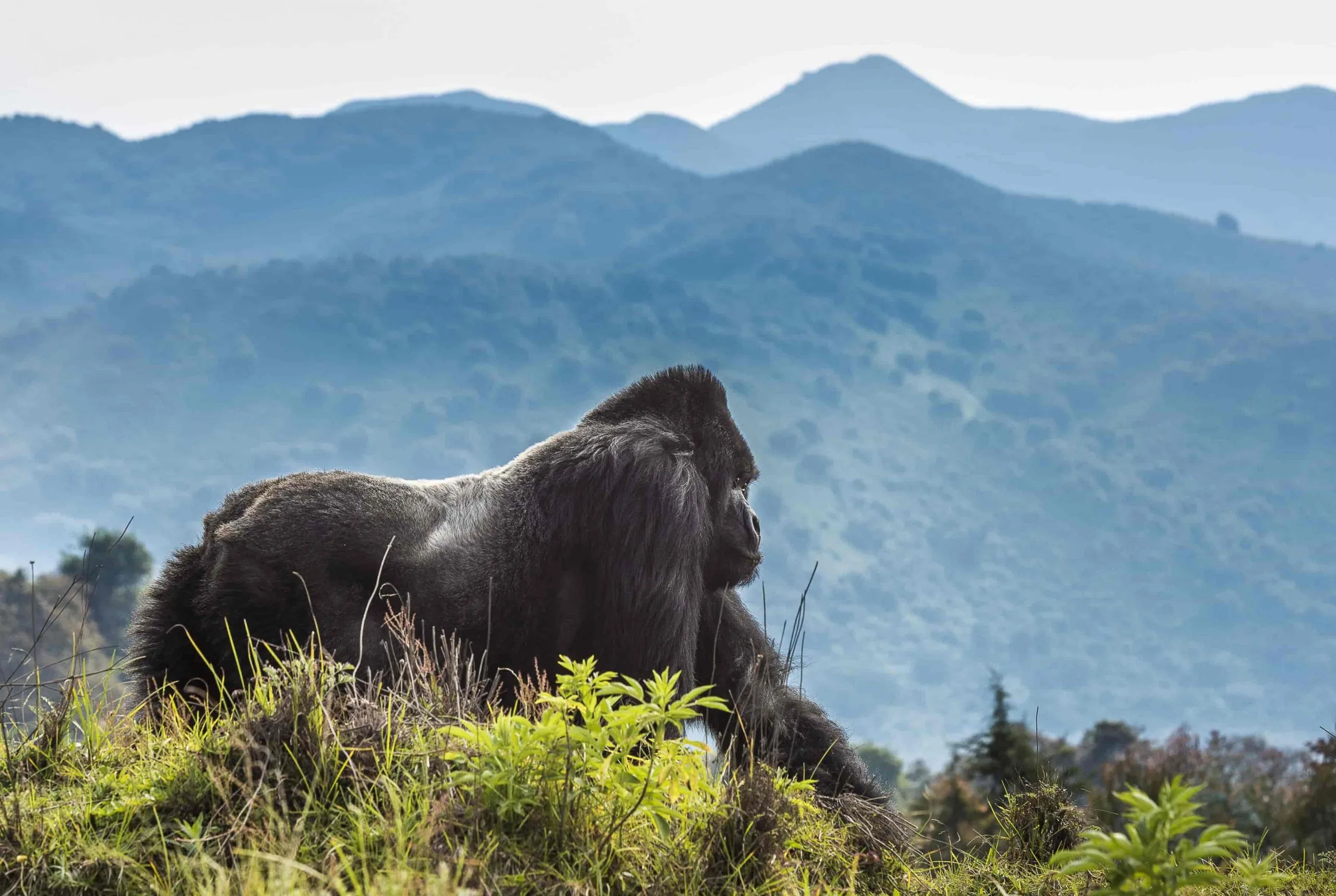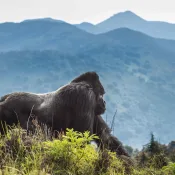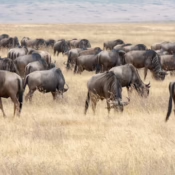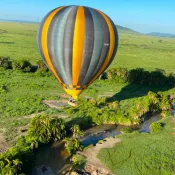
Why Gorillas Thrive Only in Volcanoes & Bwindi
The mountain gorilla (Gorilla beringei beringei) is one of Earth’s most endangered species, with fewer than 1,000 individuals remaining in the wild. Astonishingly, nearly half of this population resides in two distinct regions: Volcanoes National Park in Rwanda and Bwindi Impenetrable National Park in Uganda. But what makes these areas so uniquely suited for these majestic primates? Let’s explore the ecological factors that create the perfect sanctuary for mountain gorillas.
🌋 1. Volcanic Origins: Fertile Grounds for Survival
Both Volcanoes and Bwindi are situated in regions shaped by volcanic activity:
- Volcanoes National Park: Located in the Virunga Mountains, this park encompasses five dormant volcanoes—Mount Karisimbi, Mount Bisoke, Mount Sabyinyo, Mount Muhabura, and Mount Gahinga. The rich volcanic soils here support diverse vegetation, providing an abundant food source for the gorillas.
- Bwindi Impenetrable National Park: While not volcanic, Bwindi lies on the edge of the Albertine Rift Valley, a tectonically active region. The park’s diverse topography and rich soils support a variety of plant species, essential for the gorillas’ diet.
These fertile soils result in lush forests, offering the gorillas a stable and rich food supply year-round.
🌿 2. Dense, Multi-Layered Forests: A Natural Fortress
Both parks boast dense, multi-layered forests that offer:
- Protection from predators: The thick vegetation provides cover from potential threats.
- Abundant food sources: The forests are rich in plant species, ensuring a varied diet for the gorillas.
- Suitable nesting sites: The dense undergrowth allows gorillas to build nests safely.
This dense forest structure is crucial for the gorillas’ survival, offering both sustenance and safety.
🌡️ 3. Ideal Climate Conditions
The climate in these regions is characterized by:
- Cool temperatures: The high altitudes maintain temperatures that are comfortable for the gorillas.
- Consistent rainfall: Regular precipitation supports the growth of vegetation, ensuring a steady food supply.
- High humidity: The moist environment supports a variety of plant species, enriching the gorillas’ diet.
These climatic conditions are vital for the gorillas’ health and well-being, supporting the growth of their food sources.
🧬 4. Evolutionary Adaptations to High Altitudes
Mountain gorillas have evolved to thrive in high-altitude environments:
- Physical adaptations: Their dense fur and robust bodies help them withstand cooler temperatures.
- Dietary habits: They primarily feed on fibrous plants, which are abundant in these regions.
- Behavioral traits: They have developed nesting behaviors suited to the forested highlands.
These adaptations enable the gorillas to survive and reproduce in these specific highland habitats.
🌐 5. Conservation Efforts and Human Impact
Conservation initiatives have played a significant role in the survival of mountain gorillas:
- Anti-poaching measures: Strict laws and patrols have reduced illegal hunting.
- Habitat protection: Efforts to preserve the forests ensure a stable environment for the gorillas.
- Community involvement: Local communities are engaged in conservation, benefiting from ecotourism and sustainable practices.
These combined efforts have led to a slow but steady increase in the gorilla population, highlighting the importance of conservation in preserving these magnificent creatures.
🧭 Conclusion: A Delicate Balance
The unique combination of volcanic soils, dense forests, favorable climates, and evolutionary adaptations has made Volcanoes National Park and Bwindi Impenetrable National Park the exclusive habitats for mountain gorillas. However, their survival remains fragile, dependent on continued conservation efforts and sustainable human practices.
If you’re interested in experiencing the majesty of these incredible creatures firsthand, consider embarking on a guided trek with Acatree Tours and Safaris. Our expert guides ensure a safe and respectful encounter with the mountain gorillas, providing insights into their behavior and the ongoing conservation efforts.
📩 info@acatreetours.co.tz




